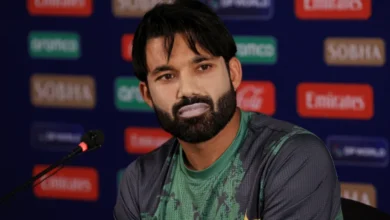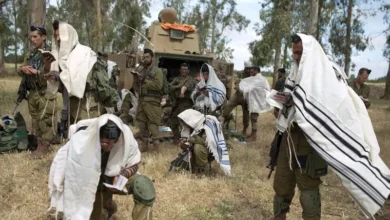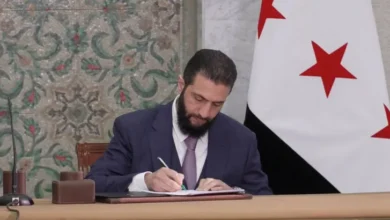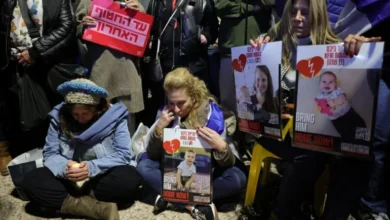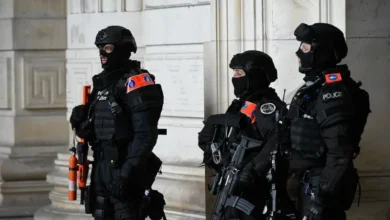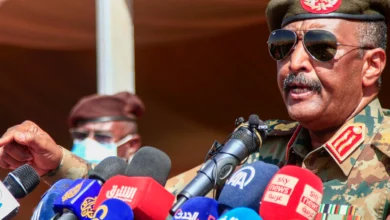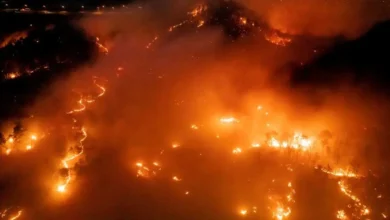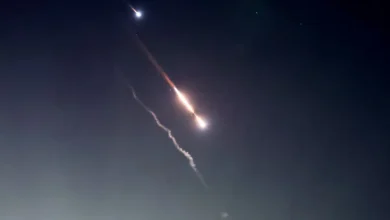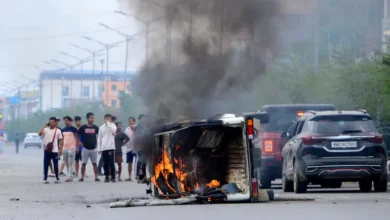Parties and grief: A stark contrast at the Democratic National Convention
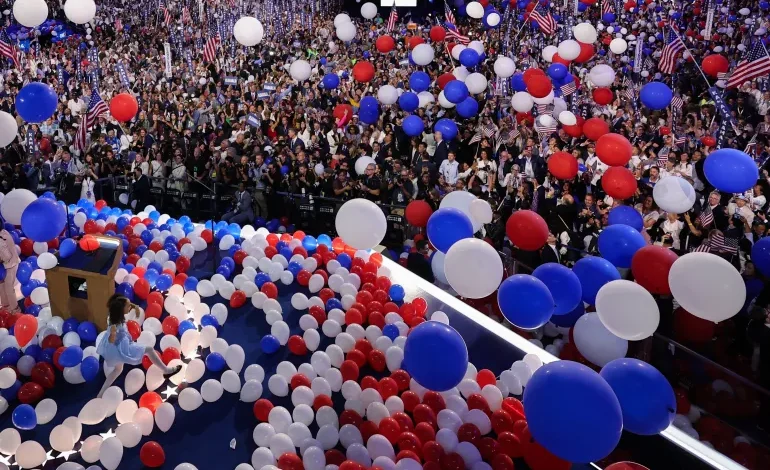
As balloons dropped from the ceiling of a packed United Center in Chicago, row upon row of Democratic Party faithful rose to their feet, clapping and shouting out with joy.
It was Thursday night, and Kamala Harris had just delivered the closing speech of this year’s Democratic National Convention.
The atmosphere was ecstatic: The Democrats in the audience were fired up, and many credited Harris with reinvigorating the party in the weeks after President Joe Biden ended his faltering re-election bid.
But while jubilant faces stretched out as far as the eye could see — and red, white and blue balloons spilled out into the halls — the mood took a markedly different turn outside of the arena.
There, a small group of people wearing Palestinian keffiyehs stood almost motionless, looking exhausted and bereaved.
The convention’s “uncommitted” delegates, who had been calling for an arms embargo against Israel amid its devastating war on Gaza, were dealt a blow after Harris said — in no uncertain terms — that she would continue to provide weapons to the US ally.
Asma Mohammed, a delegate from Minnesota, summed up how they were feeling as the convention concluded.
“There are balloons raining down on the Democrats in our party, and there are bombs raining down on children and families and people I love,” Mohammed told Al Jazeera, tears streaming down her cheeks. “That’s what I was thinking.”
Another activist rubbed her shoulder to comfort her as they both cried.
Meanwhile, overjoyed attendees walked past with their “Harris-Walz” signs and American flags.
Two radically contrasting realities ultimately emerged from the four-day convention in Chicago. On one side, there was happiness and excitement. But for Palestinian rights supporters, the convention brought further pain and disappointment.
More than 40,200 Palestinians have been killed in Gaza as the United States sends billions of dollars in aid to Israel, which continues to bombard the besieged Palestinian territory.
Many of the activists who arrived outside the convention to protest were grieving: After all, Cook County, which encompasses Chicago, has the largest Palestinian American community of any county in the US.
Those working within the Democratic Party, including the “uncommitted” delegates, had to carry that grief into the festive atmosphere of the convention. They told horrific stories of the carnage, displacement and despair in Gaza — all facilitated by US tax money.
But inside the convention hall, the party went on uninterrupted, except for a few shouts of “Free Palestine” on Thursday night as Harris spoke. Those chants were ultimately drowned out by the cheering crowd.
The demonstrators were diverse, energetic and angry. They gathered with Palestinian flags and chanted against the Israeli occupation and the Democratic Party.
“DNC, your hands are red! Over 40,000 dead,” a diminutive young woman in a hijab shouted on a megaphone on Wednesday. Thousands at the march echoed her chant.
However, some feared the city would descend into chaos as it did in 1968 when it held a Democratic convention amid the civil rights movement and the unpopular Vietnam War.
Back then, police violently cracked down on antiwar protesters. This time, no crackdown materialised.
There were a few skirmishes, but the protests were peaceful, and the demonstrators were never allowed to get too close to the convention centre, which was protected by a security perimeter with multiple layers of checkpoints.
Still, the 1968 parallels were there in the minds of many protesters, who viewed the Gaza war as this generation’s Vietnam.
“Just like 1968, there’s nothing to celebrate,” the protesters chanted.
For four days, the protesters and the uncommitted delegates marched, chanted and even begged to be heard and recognised.
But it appears that the protesters’ voices did not move the party’s leadership. The Harris campaign and event organisers ultimately rejected the “uncommitted” movement’s request to feature a Palestinian speaker during the convention.
Al Jazeera spoke to many Harris supporters at the convention; they were either sympathetic or indifferent to the protesters. Convention speakers who mentioned Palestinians and called for a ceasefire received thunderous cheers from the crowd.
Still, the Democrats were eager for the show to go on as they rallied around Harris. Palestine, for them, did not appear to be a priority. The war on Gaza and those bringing the issue to the convention seemed an afterthought, if not a nuisance.
The convention is now over. But the stark divide between glee and agony in Chicago may plague the Democratic Party for years to come.
Virtually every pro-Palestinian advocate and protester Al Jazeera spoke to at the convention had the same message: “We are not going away.”
